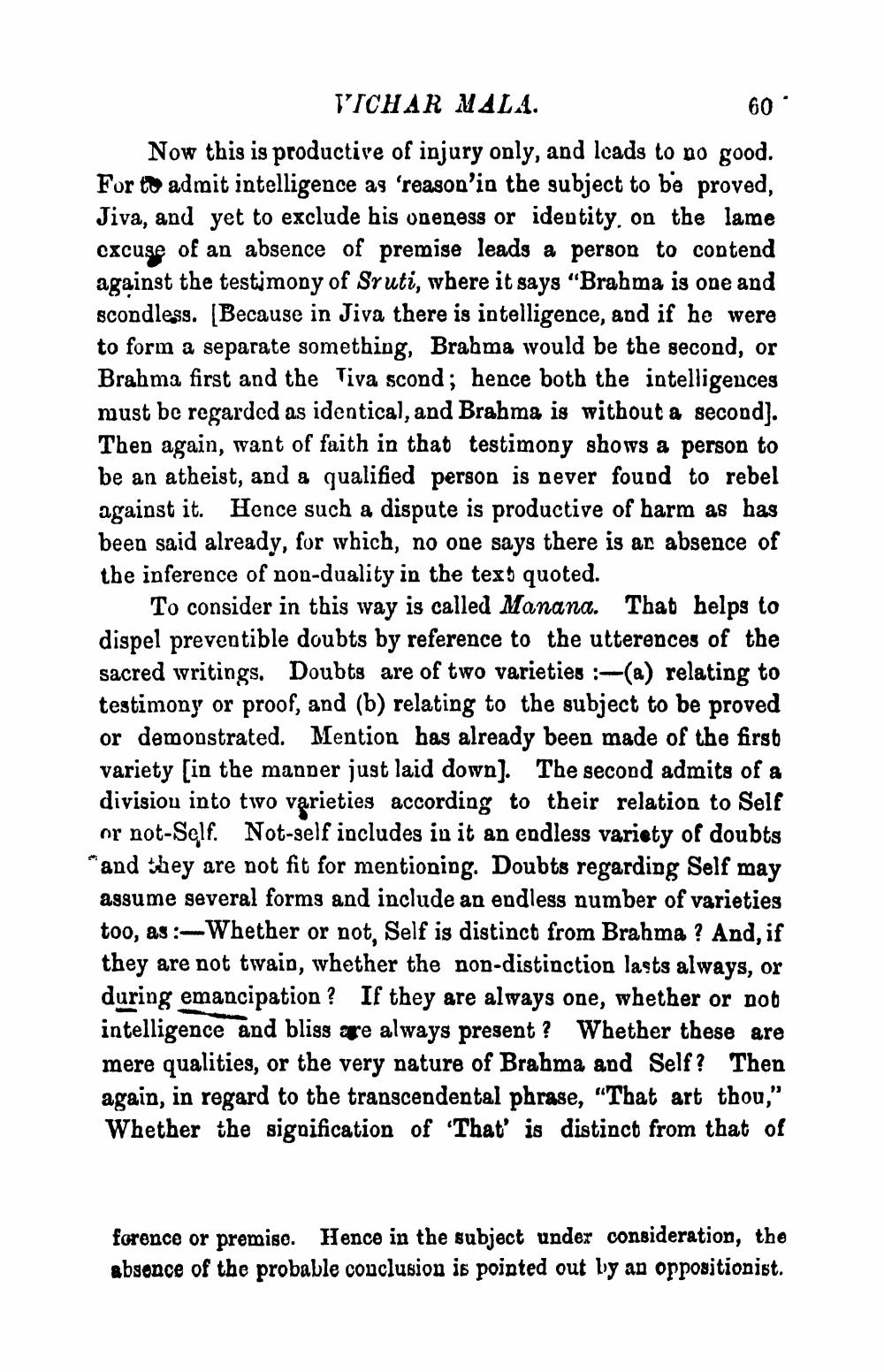________________
VICHAR MALA.
60
Now this is productive of injury only, and leads to no good. For to admit intelligence as 'reason'in the subject to be proved, Jiva, and yet to exclude his oneness or identity, on the lame excuse of an absence of premise leads a person to contend against the testimony of Sruti, where it says "Brahma is one and scondless. [Because in Jiva there is intelligence, and if he were to form a separate something, Brahma would be the second, or Brahma first and the Tiva scond; hence both the intelligences must be regarded as identical, and Brahma is without a second]. Then again, want of faith in that testimony shows a person to be an atheist, and a qualified person is never found to rebel against it. Hence such a dispute is productive of harm as has been said already, for which, no one says there is ar absence of the inference of non-duality in the text quoted.
To consider in this way is called Manana. That helps to dispel preventible doubts by reference to the utterences of the sacred writings. Doubts are of two varieties :-(a) relating to testimony or proof, and (b) relating to the subject to be proved or demonstrated. Mention has already been made of the first variety [in the manner just laid down]. The second admits of a division into two varieties according to their relation to Self or not-Self. Not-self includes in it an endless variety of doubts "and they are not fit for mentioning. Doubts regarding Self may assume several forms and include an endless number of varieties too, as :-Whether or not, Self is distinct from Brahma? And, if they are not twain, whether the non-distinction lasts always, or during emancipation? If they are always one, whether or not intelligence and bliss are always present? Whether these are mere qualities, or the very nature of Brahma and Self? Then again, in regard to the transcendental phrase, "That art thou," Whether the signification of "That' is distinct from that of
forence or premise. Hence in the subject under consideration, the absence of the probable conclusion is pointed out by an oppositionist.




